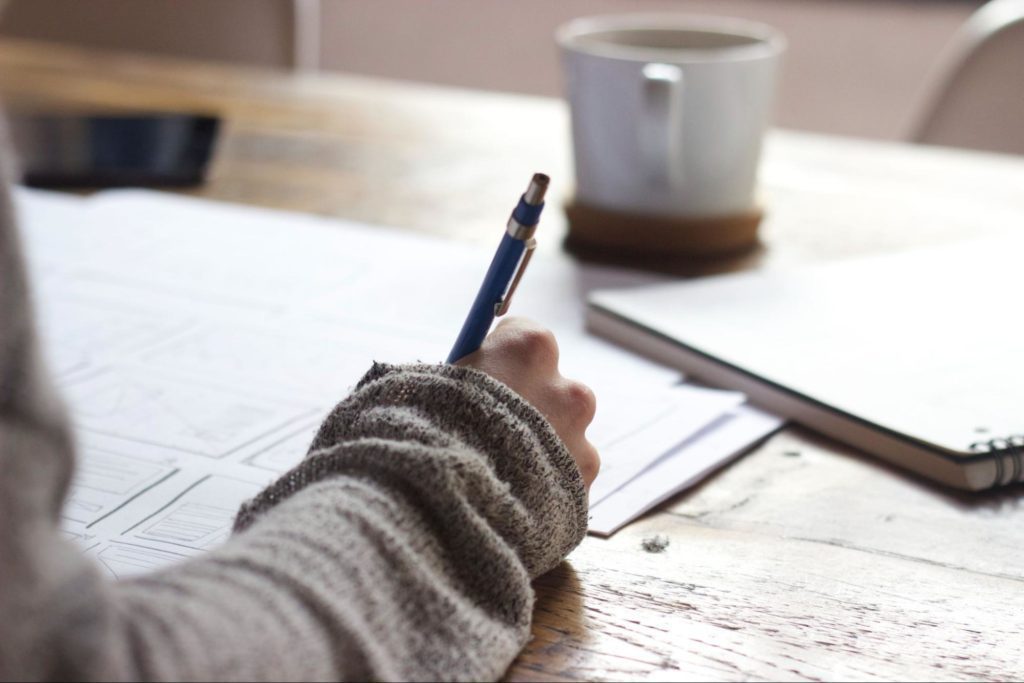5 Ways to Increase Your Creativity
Writers are the most creative people in almost any field. Shaping a blank page into meaningful text using just 26 letters seems impossible, but writers are able to do it every day.
It is easier than it has ever been to find an audience for your work. Once you produce something, the computer and the internet are great tools for bringing it to life. Unfortunately, these digital tools also have a dark side that can destroy your creativity.
Writers who use the computer exclusively are in danger of editing themselves much too quickly. When all it takes is a click of the keyboard to eliminate a random thought or a bit of text that doesn’t quite fit, you are missing part of the journey of creating something from nothing. All good ideas start off as slightly odd or too random, but in the digital age many of these ideas are never realized because they are deleted too soon.
One way to fight this is to engage your hands and your body as you write and create, and save your computer for the polishing and editing. Below are 5 ways that you can use analog methods to increase your creativity.
Mindmaps. This is still my favorite method for outlining a book, whether its one you are preparing to write or one that you are just reading. All you need is a blank page and box of crayons, though this book by Tony Buzan is full of good ideas.. This method of outlining is very hands on and will help you make new connections for your book that you would never pick up if you just used a digital outline. See an example here that I created for a short book about Jonathan Edwards.
Analog Desk. In [amazon_link id=\”0761169253\” target=\”_blank\” ]Steal Like An Artist[/amazon_link], Austin Kleon shares his idea of setting up two desks: one for your digital tools and one for your analog tools. It’s a great method for moving back and forth between your creative mode and your editing mode, and one that I will be implementing soon.
\”The computer is really good for editing your ideas, and it’s really good for getting your ideas ready for publishing out into the world, but it’s not really good for generating ideas.\” ([amazon_link id=\”0761169253\” target=\”_blank\” ]Steal Like An Artist[/amazon_link], 58)
Use Your Hands. Whether its a hobby, helping your kids build Lego towers, or playing a sport, you should engage your hands frequently. There is a connection between kinetic energy and creating something that is lost when you just sit in front of a computer.
The next time you are struggling to come with a new idea, keep it in the back of your mind while you play with your kids. Your brain will keep working on the problem and the motion of your hands will help. This is also a useful tool when you are stuck at your office – get up and walk around, stand up while you write, or take a break and do anything besides sitting and thinking.
Pile-It. One of the most successful non-fiction writers around, Dan Poynter, suggests using the pile-it for your research. It’s a simple three step process that will get you organized more quickly than any digital method.
First, cut out or copy all relevant research to your book that you want to use. If its in a book, copy and print it out. If its in a magazine or newspaper, cut it out.
Second, use your outline (or your mindmap) and make piles of your research for the different topics you choose.
Last step is the simplest. Just pick the most interesting pile and start righting. Prioritize the most interesting and you will build momentum as you move on to other areas.
Mark It Up. One of my favorite analog tools is the multi-pen. I carry at least one with me wherever I go, and its a great tool to have on you when you are reading a book. Use a different color for notes, for quotes, for your own personal index, and just about anything else that you want to remember in a book. Don’t be content to just read a book and take notes on your computer – mark up your books.
Mindhacker has an excellent chapter on marking up your books, and you can also get some tips from [amazon_link id=\”0736926828\” target=\”_blank\” ]Kay Arthur’s books[/amazon_link] on Bible study.
What analog tools do you use to fuel creativity?




